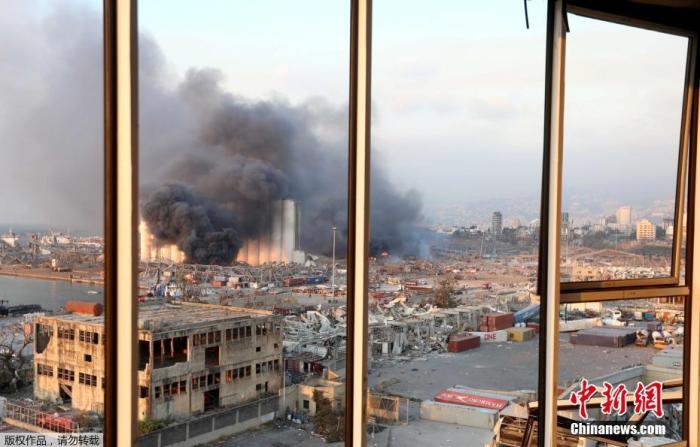China News Service, August 5, reported that on the evening of August 4, local time, a violent explosion occurred in the Beirut port area of Lebanon, causing at least 78 deaths and 4,000 injuries. The data collected by the US Geological Survey shows that the seismic waves generated by the explosion are equivalent to a magnitude 3.3 earthquake, and the actual power is even greater than a magnitude 3.3 earthquake. Nearby residents described the explosion as "like an atomic bomb (explosion)".
At around 18:10 on August 4, local time, a violent explosion occurred in the Beirut port area. The explosion site contained industrial and military facilities, as well as a granary. The latest news shows that at least 78 people were killed and 4,000 injured in the explosion. It is not yet clear why the explosion occurred, but Lebanese Prime Minister Hassan Diab said that 2,750 tons of ammonium nitrate were stored near the explosion site.
The explosion caused severe damage to several blocks in Beirut, with broken buildings and scattered glass shards everywhere. The picture shows the glass of a building near the port was shattered.
The explosion was so powerful that the whole city felt the shock waves, the windows of homes were shattered, and the apartment balconies collapsed. Images shared by residents on social media showed that thick cylindrical smoke rose, followed by a big explosion.
A retired teacher in her 70s said: "It's like an atomic bomb (explosion)." She has lived near the port for decades. She said: "I have experienced everything, but it has never been like this." All the buildings collapsed.”
According to reports, this was the strongest explosion in Beirut in several years. Some residents mistakenly believed that there was an earthquake. According to data collected by the US Geological Survey, the seismic waves produced by the large-scale explosion in Beirut are equivalent to a magnitude 3.3 earthquake. But the report said that the power of the explosion cannot be "directly compared with an earthquake of similar magnitude."
According to Don Blackman, a geophysicist at the National Earthquake Information Center, this is because explosions above the surface, such as the Beirut explosion, do not produce a magnitude similar to energy earthquakes. Blackman said that most of the energy from the explosion went to the air and buildings, and "not enough energy was transferred to the rocks underground."
According to reports, this means that the actual power of the explosion is greater than a magnitude 3.3 earthquake. If the explosion occurred below the surface of the earth, the magnitude would be higher.

